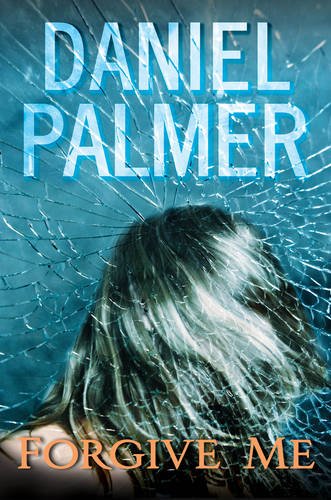

Between the Lines with Daniel Palmer
Embracing the Legacy—and Setting a New Mark
I’ve heard that varied experiences, an artistic temperament, or even genetics could predict writing talent. By any of those measures it’s no surprise that Daniel Palmer has turned out a steady flow of bestsellers. After earning his master’s degree from Boston University, he spent a decade as an e-commerce pioneer. He’s an accomplished blues harmonica player. And he’s the son of bestselling author Michael Palmer, whose legacy lives on because Daniel’s been asked to continue his father’s oeuvre. Which means now two of Daniel’s novels are being released at the same time.
MERCY is the second Michael Palmer medical thriller Daniel’s written in the tradition of his late father. In it, Dr. Julie Devereux is an outspoken advocate for the right to die—until a motorcycle accident leaves her fiancé, Sam Talbot, a quadriplegic. While Sam begs to end his life, Julie sees hope in a life together. But then Sam suddenly dies from an unusual heart defect, one seen only in those under extreme stress. It appears that Sam was literally scared to death. As Julie investigates similar cases, she finds a frightening pattern, and becomes the target of disturbing threats. As Julie discovers more cases, the threats escalate, until she is accused of a mercy killing herself. To clear her name she must track down whoever is behind these mysterious deaths, but someone has decided that killing Julie is the only way to stop her.
In FORGIVE ME Angie DeRose is a private investigator in Virginia, working to find and rescue endangered runaways. In the wake of her mother’s death, Angie makes a life-altering discovery. Hidden in her parents’ attic is a photograph of a little girl with a hand-written message on the back: “May God forgive me.” Angie doesn’t know what it means. Could she have a sister she never knew about? Angie sets out to learn the fate of the girl in the photo. But the lies she unearths drag the past into the present. Everything she holds dear is threatened by the repercussions of one long-ago choice, and an enemy who will kill to keep a secret hidden forever.
Beyond writing thrillers, Palmer is a lifelong Red Sox fan, and lives in New Hampshire with his wife and two children where he is hard at work on his next novel. Palmer has kindly agreed to share his thoughts on his two new books, his writing process, and what it means to be carrying on his father’s work.
FORGIVE ME seems to have a very personal theme. Did the story arise from a personal experience or did you snatch it from the reality of today’s society?
Angie DeRose’s search for a runaway girl named Nadine Jessup coincides with her quest to identify a girl in a photograph she finds hidden among the mementos in her parents’ attic.
What makes this book personal for me is my connection to the runaway girl. To my surprise, during the writing process, Nadine took over the story. I wanted her storyline to convey the danger facing all runaways, but the horror of her ordeal proved tough to convey. I did not want to write anything too graphic for my readers or myself. At the same time, I wanted to be faithful to the stories of the real-life victims of these crimes. Nadine herself showed me the answer: a journal of her captivity, giving the reader access to her private thoughts and fears. The question was whether I could meet the challenge. I’m a 40-something-year-old man. What do I know about being a teenage girl in such a terrible predicament?
As I began to write, however, Nadine Jessup came alive. I wrote the pages of her journal as quickly as if Nadine had penned them herself. The result is a story different from anything I’ve done before, and I believe Nadine’s journal is what makes this book special.
 Tell us a little about DeRose. Is she a heroine in the traditional sense? Does she see herself as a hero?
Tell us a little about DeRose. Is she a heroine in the traditional sense? Does she see herself as a hero?
Most of my main characters don’t view themselves as heroes, but rather as problem solvers. Angie is no exception. Angie’s specialty, her passion, is finding runaways. While researching the book, I got to know a real-life P.I. named Anji, from the She Spies Private Eye Agency in Round Rock, Texas, who does this exact type of work. Anji became the inspiration for my Angie. (In fact, I named the character in her honor.) Not only did Anji teach me about the PI trade, she also gave me insight into the emotions that come with the job. The stakes are often very high, and the phone seldom stops ringing.
Dr. Julie Devereux in MERCY is also a crusader of sorts. What is it about this kind of character that attracts you to them as protagonists?
Julie is the kind of character my father loved to write about, which was why she spoke to me. As with many people, her overarching goal in life is simply to be happy. But because of who she is and what she does, that life goal, for a time, will be unobtainable. In this regard, her drive to get through the story—to extract herself from the book’s plot to achieve closure and resume her happy existence—is a very relatable motivation. I love a good Jason Bourne-type character, but I’m drawn to these ordinary people because they’re like us.
The protagonists of these two novels are both very interesting. Do you find particular challenges in writing such solid female characters?
I try to craft characters with attributes I admire and wish to emulate. That said, there’s a bit of nuance at work here that makes it impossible for the pronouns to be interchangeable. To be honest, I’m not exactly sure what I do to make my female characters strong. I think I have good intuition and instincts when it comes to understanding people. I try to tap into that as I’m writing. Observation and empathy are essential tools in the writer’s toolbox when crafting characters of the opposite sex. I also have strong women in my life (my mom, wife, and daughter to name three), which is maybe why I love writing strong female leads.
Your publisher is releasing two of your novels almost simultaneously! I understand you actually wrote them at the same time. How do you hold two such disparate casts of characters and storylines in your head at once?
Well, I don’t recommend it. It wasn’t intended, but when my father’s longtime publisher, St. Martin’s, asked me to write Michael Palmer medical thrillers, I had to keep his publishing schedule—which happened to coincide with mine. I wanted to honor my father’s legacy and write the kind of books he would have written, so I jumped at the opportunity. My dad was my mentor and friend, a paragon of how to do this business right. The herculean task of keeping everything straight in my mind as I worked on two books simultaneously has been well worth it for the results. I’m proud of both of these books, but working on the Michael Palmer medical thrillers has proved to be a remarkable and deeply emotional journey. Continuing his legacy is a thrill and honor that leaves me humbled and incredibly grateful.
Does being a second generation novelist make you feel that you are under any particular pressure?
There’s no way to do this job without feeling some pressure. The pressure I feel right now is to keep working. Fear of failure is a powerful motivator. Every day you have to sit down and produce. There are no shortcuts. You have to read a lot and write a lot. It’s hard work, and when you start publishing, a thick skin comes in very handy. My father sometimes quipped that he loved having written books more than writing them. He kept motivational notes taped to his computer monitor. One read: This is hard. The other read: Be fearless. I still haven’t come across a more apt description of the profession, or a better encapsulation of what it takes to succeed.
Family aside, who were your influences as you developed your writing style.
Without a doubt, Stephen King is my biggest influence, but that’s a bit like saying, “I kind of dig Mozart.” For me, opening a King book means losing myself in his world and coming to know his characters as if they were actual people. Following his advice, I try my best to tell character-driven stories that ignite my reader’s imagination. To quote King: “You cannot hope to sweep someone else away by the force of your writing until it has been done to you.”
I’ve seen you perform at Thrillerfest and know you to be an accomplished musician. Which brings you more joy, writing or music? And why?
Even though I don’t pursue it professionally, I do take the craft of songwriting seriously. I’ve recorded two CDs; licensed songs to several companies, including one to J. Crew; and have at least three new albums’ worth of material in my song vault. I love writing songs, and I’ll keep on doing it even though my audience is limited to my wife and dog. I’d honestly love for more people to hear my songs. In fact, when I first got published, I thought, “Maybe now people will take an interest in my music.” Well, that hasn’t happened yet, but that’s not going to stop me from writing new songs. As for which of the two disciplines I like best, that’s kind of like asking a parent to name their favorite kid.
I think they’re both awesome.
Did your career in e-commerce have any influence on your writing?
I start every new book project searching for a big idea to ground the narrative. These ideas often revolve around some aspect of technology because it’s what I know best. The protagonist of my first book was a software entrepreneur, a character I modeled after my experiences in e-commerce. My subsequent novels have also had cyber themes. As a crime writer, my tech background should continue to serve me well. Cyber crime is the fastest growing type of criminal enterprise. These bad guys are giving me plenty of fodder to devise devious plots.
You are a recognized master of suspense. Your books have people looking over their shoulders for weeks. What is your secret? How do you create such taut suspense on the page?
Aww, shucks…I bet you say that to all the authors you interview. Well, I hope that’s true. I do my best to be good at the craft. My golden rule: never bore my reader. As I plot and write, I keep asking myself: is this dull? Would a reader stop reading here? I’d much rather crash and burn going for something outrageous than to play it safe.
I want the reader to care deeply about the characters and have them wonder what they would do in a similar circumstance. Readers invested in at least one character are readers who turn the page. To make a reader care requires the right blend of conflict (obstacles are your friend) and high stakes. From there, it’s a question of pacing. It helps with pacing to open a book with a big question that doesn’t get answered until the end. It’s why Kurt Vonnegut suggests writers begin as close to the end as possible.
 What does the future hold for your readers?
What does the future hold for your readers?
I’m continuing to write the Michael Palmer medical thrillers. The next one is called The First Family. It’s about a doctor who battles the chief White House physician as he tries to cure the President’s son who has symptoms of a never before seen disease. As for Angie DeRose, I don’t know what her future holds. But I do know I have something terrible in mind for a very sweet and innocent leading character.
One last question: Will the Red Sox win the pennant?
I always say yes. Then again, I’m eternally optimistic.
- River of Ashes by Alexandrea Weis & Lucas Astor - August 1, 2022
- Up Close: Zac Topping - June 30, 2022
- Up Close: Joey Hartstone - May 31, 2022


